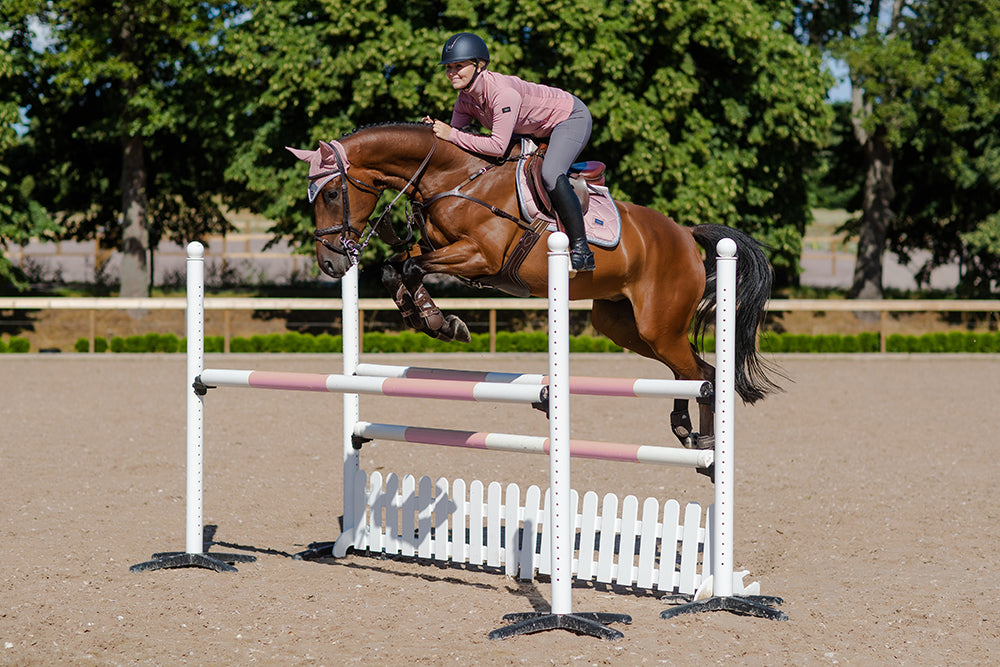Horse riding enthusiasts often encounter the term ‘wet saddle pads’. To the uninitiated, this phrase might sound peculiar. However, it’s an essential concept in the world of equestrianism, befitting those who are earnest about horse care and riding proficiency.
So, what does wet saddle pads mean? In simple terms, it refers to the condition in which a horse’s saddle pad becomes soaked with sweat during rigorous training or riding sessions. This tells the rider and trainer quite a bit about the horse’s workout and overall well-being.

Understanding Wet Saddle Pads
The notion of wet saddle pads isn’t merely about moisture. It indicates the level of exertion experienced by the horse. The moisture buildup under the saddle pad points to how hard the horse has worked.
Importance for Equestrians
For trainers, seeing wet saddle pads means that the session was fruitful. This phrase transcends its literal meaning, denoting solid exercise and proficient training.

Benefits of Wet Saddle Pads
Monitoring Horse Health
Observing wet saddle pads is a method to gauge a horse’s physical exertion. It helps identify if the horse has had an adequate workout.
Indication of Proper Training
Consistently wet saddle pads signify that a horse is building stamina and muscle. It also shows an active blood flow, crucial for a horse’s health.

How to Achieve Wet Saddle Pads
Proper Warm-up
A warm-up is essential before intensive training. This prepares the horse’s muscles and prevents injuries.
Balanced Riding
Balance is key in riding. It ensures that your horse gets a good workout while preventing undue stress.
Appropriate Equipment
Using the right saddle and pad ensures comfort and helps in attaining the desired level of exertion. For information about different types of saddles refer jumping saddle and saddle anesthesia.

Signs of Overworking a Horse
Excessive Sweating
While some sweat is good, excessive sweating can be a sign of overworking.
Behavioral Changes
Watch out for signs of fatigue or distress in your horse’s behavior. It could indicate too much exertion.
Maintaining Saddle and Pad Hygiene
Cleaning the Saddle
Regular cleaning of the saddle is essential. Visit for more tips cleaning tips.
Washing Saddle Pads
Frequently washing the saddle pads prevents bacterial growth and maintains comfort.
Choosing the Right Saddle Pads
Material
Selection of material is crucial. Absorbent and breathable materials are ideal.
Fit
The saddle pad should fit well under the saddle and offer adequate protection to the horse.
Common Misconceptions about Wet Saddle Pads
It’s Just Sweat
Some believe that wet saddle pads are merely a result of sweat. However, it indicates an effective training.
All Sweat is Equal
Not all sweat patterns are the same. They tell different stories about muscle engagement and workout intensity.
Maintaining Horse Health alongside Wet Saddle Pads
Regular Check-ups
Consistent veterinary check-ups are essential to monitor the horse’s health.
Balanced Diet
A balanced diet complements physical exertion and supports overall health.
Case Study: A Week in the Life of an Equestrian
Let’s look at the practical impact of wet saddle pads.
Day 1: Light Training
Focus on building a bond with gentle riding sessions.
Day 2: Moderate Training
Increase intensity to improve stamina.
Day 3: Rest Day
Allow your horse time to recover.
Day 4: Intense Training
Observe wet saddle pads as an indicator of hard work.
Day 5: Observation
Assess your horse’s response to the previous days training.
External Perspective: Equine Experts’ Opinion
Experts advocate paying close attention to these indicators to optimize training programs.
Frequently Asked Questions
What should I do if my horse’s saddle pad stays dry?
If your horse’s saddle pad remains dry, it could mean that the training session wasn’t strenuous enough. It’s essential to adjust the workout intensity gradually.
Are there specific saddle pads that promote better sweat absorption?
Yes, certain materials are known for better sweat absorption. Look for a saddle pad that fits well and is made of absorbent material.
How often should I clean my saddle pad?
Cleaning frequency depends on usage, but its advisable to clean it at least once a week or after every intensive training session. Here are some additional cleaning tips.
In conclusion, the concept of wet saddle pads is an essential aspect of equestrian training, reflecting a horse’s exertion and overall health. By monitoring and maintaining your horse’s saddle pads, you can ensure effective training and optimal care.
As an Amazon Associate, I earn from qualifying purchases.
As an Amazon Associate, I earn from qualifying purchases.